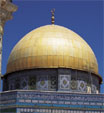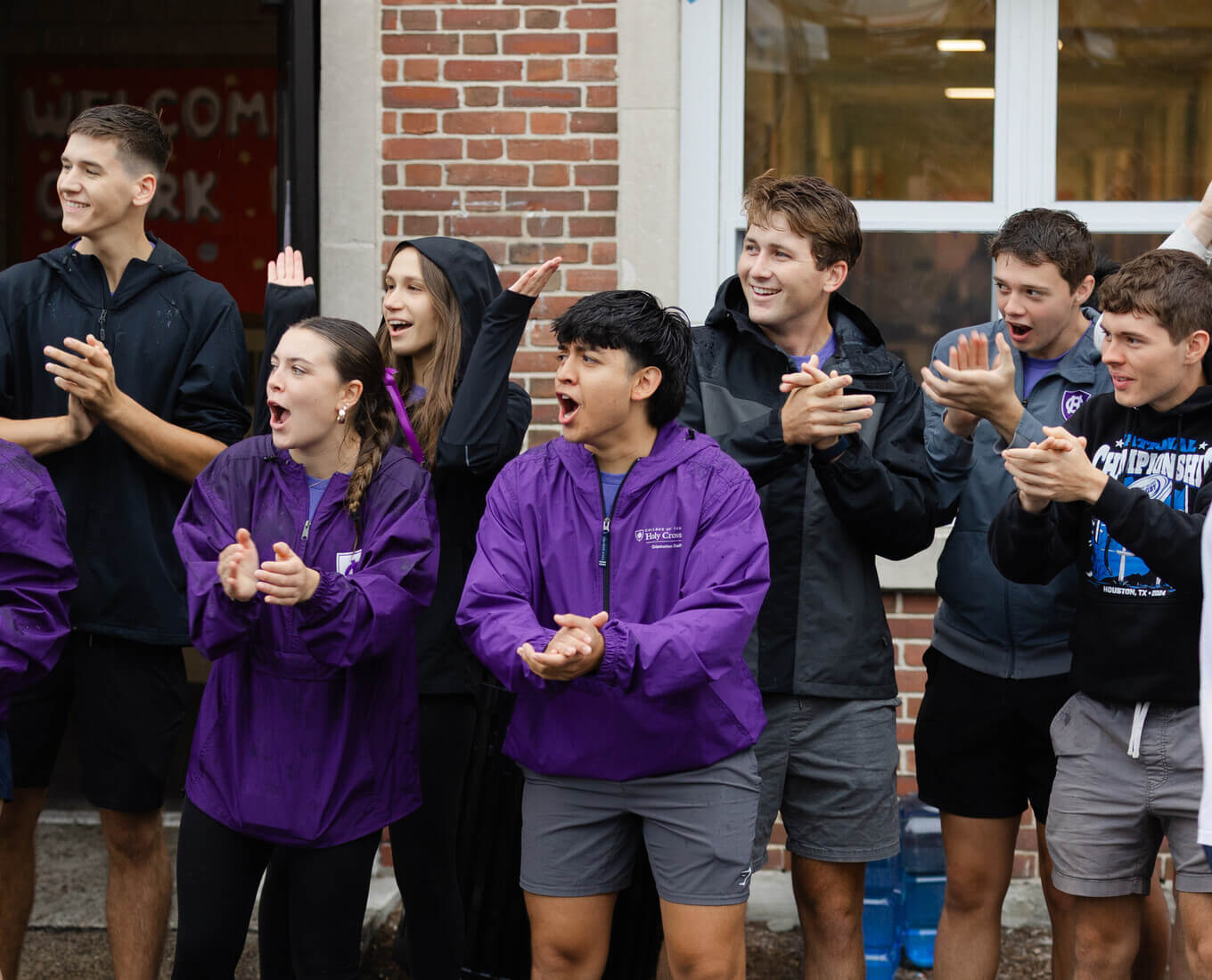 The Center for Religion, Ethics and Culture at the College of the Holy Cross is hosting the third alumni colloquium on critical issues facing the Catholic Church. Approximately 40 alumni, 12 Holy Cross faculty members, and some current students will join four speakers for this year’s colloquium, “Islam and Christianity,” during the weekend of March 16 through 18.
The Center for Religion, Ethics and Culture at the College of the Holy Cross is hosting the third alumni colloquium on critical issues facing the Catholic Church. Approximately 40 alumni, 12 Holy Cross faculty members, and some current students will join four speakers for this year’s colloquium, “Islam and Christianity,” during the weekend of March 16 through 18.
ORIGINS OF THE TITLE Swiped straight from the headlines, says Bill Shea, director of the Center. The strife between Muslims and Jews in the Middle East and the war in Iraq, in which the Muslim sects play a large role, has made international news for years. He’s also referring to the recent strain between the Vatican and Muslims over comments by Pope Benedict XVI and the tension that arises between two religions that are now and have been expansionist in the same territory — in this case Islam and Christianity in Africa.
WHY THIS TOPIC? With an estimated 1.4 billion adherents known as Muslims spread across the globe, Islam is the second-largest religion in the world today. Even so, Shea says most Americans are deeply lacking knowledge of Islam. Greater understanding, therefore, is an important goal of Western education.
THE ISSUES 1) What kind of a religion is Islam? Are there different sorts of Islam as there are of Judaism and Christianity? How do they translate into politics and economics? 2) How has Islam been received in the United States and where does it stand in our culture? 3) How should we view Islam in historical perspective? What has it meant to human beings and what does it mean now? What has its cultural impact been? 4) Are we, as westerners and inheritors of quite different religions, afflicted by Islamo-phobia and, if so, how must we overcome our fear? Do Muslims have a phobia of their own? Is there any hope in the notion that Islam is a sister-religion in overarching Abrahamic tradition — or is this an empty “academic” phrase?
ABOUT THE PRESENTERS Sahar Bazzaz, assistant professor of history at Holy Cross, has special expertise in the Ottoman empire, and modern Middle Eastern and North African history. John Renard, professor of theological studies at Saint Louis University, is author of highly-acclaimed books and essays on Islamic art and religion. The Colloquium is using his book, Understanding the Islamic Experience (Paulist Press, 2002), as background reading. Adam Gaiser, assistant professor in the religion department at Florida State University and last year’s visiting professor in the religious studies department at Holy Cross, specializes in the history of Islam, Islamic sectarianism and Islam in Europe and North America. Anisa Mehdi, adjunct professor of communications at Seton Hall University and Emmy-winning journalist specializing in religion and the arts, is producer/director of “Inside Mecca,” the National Geographic special that premiered on PBS in 2003 which focused on the pilgrimage of three individuals: from the United States, Malaysia and South Africa to Mecca for the hajj. The film will be viewed at the opening session of the colloquium.
PEACE THROUGH RELIGION? Matthew Mohorovich ’08 is one of the students looking forward to engaging in thoughtful discourse throughout the weekend’s events. “When one looks at the violence in the world today, one can find it hard to believe that such a universal set of moral principles can ever be agreed upon,” he says. “The destruction that is coming out of conflicts between major religions today makes one wonder if religion itself — if scripture — might be the problem, the source of irrationality that makes people unable to come to an agreement on any universal moral principles. Many in the modern day criticize religion as the problem that divides us. Many believe that if we removed religion from the world, peace would be possible. Yet could this be so? It is made to seem that religions counter each other in such drastic ways. It is made to seem as if there is an absolute incompatibility between them, and as a result an absolute incompatibility between mankind. Yet in reality religions are a lot more compatible than we make them out to be. Religion is not an obstacle to uniting the world, but rather the only vehicle through which we can do so.” Mohorovich’s thesis project, which he is working on with Sahar Bazzaz, assistant professor of history, concerns similar issues.
THE LIVELY DISCUSSION Participants will hear what the experts have to say and to press upon them the questions for which there are no formulated answers — and even to argue with them if they have different answers.
West Meets East
Alumni colloquium to explore solutions to conflict between Christianity and Islam
Read Time
3 Minutes
